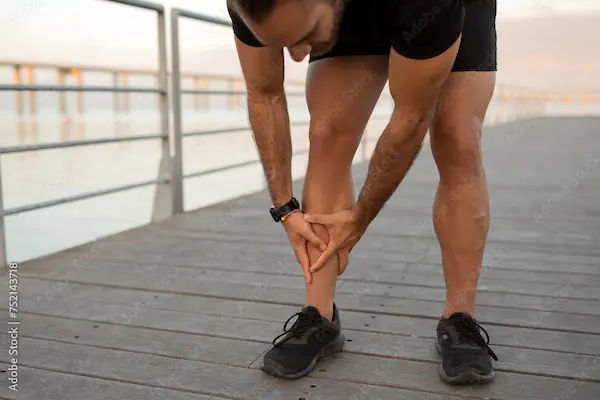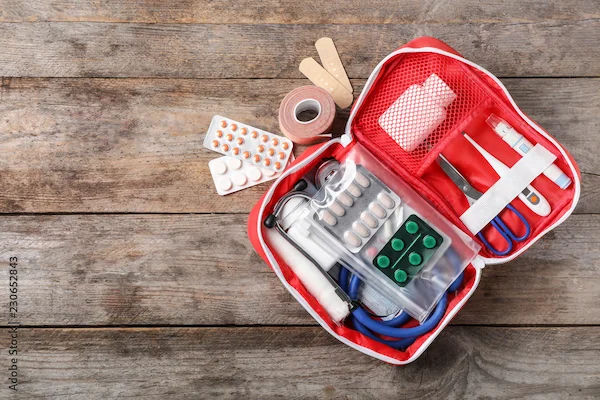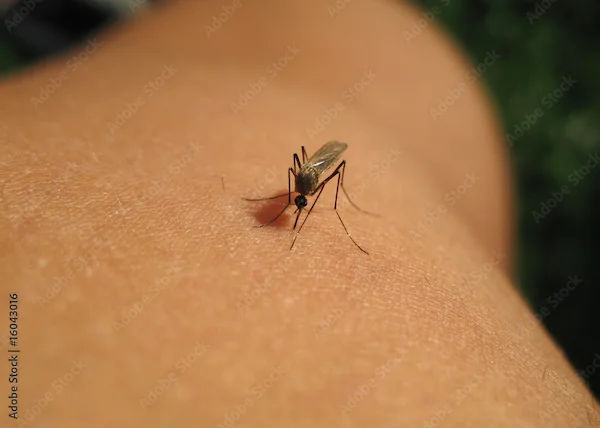How To Reduce Swelling On The Face?
Understand how to reduce facial swelling with effective home remedies, medical treatments, and lifestyle changes. Explore common causes, prevention tips, and when to seek medical help for persistent or severe swelling.

Written by
Last updated on 3rd Jul, 2025
Occasionally, a puffy or swollen face may result from pressure on the face while sleeping. However, swelling can also be caused by an injury or an underlying medical condition that may require immediate treatment.
Facial swelling can affect different areas, such as ears, neck, throat, eyes, cheeks, and forehead. Read on to explore all the possible causes of facial swelling, preventive measures, and effective home remedies.
Identifying the Cause of Facial Swelling
Facial swelling, also known as facial oedema, can occur for several reasons. A puffy face in the morning is often due to normal overnight fluid retention, which may be more noticeable with too much or too little sleep. Swelling is also a side effect of surgeries or injuries involving the face, jaw, or neck.
Some common causes of facial swelling include:
Allergic reactions like hay fever, bee stings, or food allergies.
Medication reactions, such as prednisone.
Facial injuries such as a broken nose or fractured jaw.
Infection conditions like cellulitis, pink eye, and sinusitis.
While some medical conditions linked to facial swelling generally include:
Angioedema: Painless swelling under the skin, affecting areas like the eyes, lips, and tongue.
Cushing’s Syndrome: A disorder that occurs due to an overproduction of cortisol.
Hyperthyroidism: Overactive thyroid gland producing too many hormones.
Lupus: An autoimmune disease causing inflammation in the skin, joints, and organs.
Preeclampsia: High blood pressure during pregnancy.
Causes of swelling on one side of the face include:
Cysts: Fluid-filled lumps under the skin.
Lipomas: Noncancerous fatty growths.
Salivary Gland Issues: Severe conditions such as salivary stones, swollen glands, or parotid gland swelling.
Swollen Lymph Nodes: Usually due to infections or other underlying conditions.
Tooth Abscess: A bacterial infection causing a buildup of pus, leading to facial swelling.
In rare cases, facial swelling can be a sign of anaphylaxis, a severe allergic reaction that can be life-threatening. If symptoms such as difficulty breathing or swallowing occur, immediate emergency medical care is needed.
Immediate Remedies to Reduce Swelling on Face
If facial swelling occurs unexpectedly, it is essential to see a healthcare provider. While waiting for an appointment, the following home remedies may help relieve symptoms:
Keep the Head Elevated: This helps reduce fluid buildup in the face.
Apply a Cold Compress: Using a cold pack can help decrease swelling and inflammation.
Take Pain Relievers: Medications like acetaminophen (Tylenol) or ibuprofen (Advil) can help reduce discomfort.
Medical Treatments for Persistent Facial Swelling
The treatment for facial swelling generally depends on its cause and may include:
Antibiotics are used to treat swelling caused by infections.
Antihistamines help reduce swelling caused by allergies.
Corticosteroids are used for swelling due to rashes or allergic reactions.
Epinephrine (EpiPen) is required for severe allergic reactions such as anaphylaxis.
Medication adjustments in case a specific drug is causing the swelling.
Nasal irrigation helps relieve swelling caused by sinus infections.
Surgery may be needed for facial injuries, blocked salivary glands, or abscessed teeth.
A healthcare professional will assess the condition and recommend the most suitable treatment based on the underlying cause.
Home Remedies and Lifestyle Changes to Reduce Facial Swelling
Treatment for facial swelling usually targets areas such as the eyes, eyelids, cheeks, or jaw. In some cases, it mainly focuses on reducing swelling caused by fractures, allergies, dental issues, sinus problems, or other medical conditions.
If the swelling is due to an injury or an allergic reaction, medical attention should be sought before trying any home remedies. A doctor can identify the exact cause and recommend the best treatment.
Once the cause is detected, several methods can help reduce facial swelling, including:
Adequate sleep supports healing and overall health.
Drinking adequate amounts of water can help reduce fluid retention and face swelling.
Applying a cold pack can also reduce face swelling and inflammation.
Applying a warm compress may help drain fluid buildup, but care should be taken around the sensitive eye area.
The elevation technique keeps the swollen area elevated above heart level and can even improve circulation and reduce fluid accumulation.
Antihistamines or prescribed medications can help with allergy-related swelling.
Nonsteroidal anti-inflammatory drugs (NSAIDs) can also reduce pain and swelling.
If an abscessed tooth is the cause, antibiotics, along with home remedies, can help.
For mild swelling, placing cucumber slices or tea bags on the affected area or gently massaging them may improve blood circulation and reduce puffiness.
When to See a Doctor for Facial Swelling?
Mild facial swelling usually gets cured on its own, but medical help is necessary in certain situations, such as:
Sudden and severe swelling, especially if it affects breathing or swallowing.
Swelling with fever, breathing difficulties, or other serious symptoms.
Swelling that lasts several days without any signs of improvement.
Repeated episodes of facial swelling without a clear cause.
A medical evaluation can help determine the cause, prevent complications, and even ensure proper treatment.
Preventive Measures for Swelling on Face
Taking preventive steps can help reduce the risk of facial swelling. Consider these important steps to follow:
Avoid Known Allergens or Triggers
Identifying and staying away from substances that cause allergic reactions, such as certain foods, medications, or environmental factors, can help prevent face swelling.
Maintain Good Oral Hygiene
Brushing and flossing regularly, along with routine dental check-ups, can prevent infections or dental issues that may lead to facial swelling.
Wearing Protective Gear
Using helmets, mouthguards, or face shields while playing sports or engaging in activities with a risk of facial injury can help prevent trauma-related swelling.
Manage Existing Health Conditions
Controlling autoimmune disorders, thyroid issues, or lymphatic system problems through proper medical care can reduce the likelihood of swelling.
Stay Hydrated
Drinking enough water throughout the day helps flush out excess fluids and supports healthy circulation while reducing fluid retention.
Limit Sodium Intake
Consuming too much salt can cause water retention and swelling. So, a balanced diet with lower sodium levels can help maintain fluid balance.
Protect the Skin from Sun Exposure
Using sunscreen and avoiding excessive sun exposure can prevent skin irritation or conditions that might contribute to facial swelling.
Reduce Stress Levels
Practising relaxation techniques such as deep breathing, meditation, or yoga can help manage stress, which may otherwise trigger inflammation or worsen certain medical conditions.
Conclusion
Waking up with a puffy or swollen face occasionally is normal. However, facial swelling can also occur due to an injury or an underlying health condition. While quick remedies may provide immediate relief, identifying the root cause is also essential for proper treatment.
Moreover, understanding the possible reasons behind facial swelling can help in taking preventive steps or managing it effectively. If the swelling is severe or does not get cured, seeking medical attention is crucial to address any underlying health concerns and receive proper treatment.
Consult Top Dermatologist
Consult Top Dermatologist

Dr. S Madhuri
Dermatologist
10 Years • MBBS, MD. DVL, DNB, Fellow (Dermatosurgery & Lasers)
Secunderabad
Apollo Hospitals Secunderabad, Secunderabad
(425+ Patients)

Dr. Sonal Jain
Dermatologist
9 Years • MBBS, MD (Skin & VD), DNB (DVL), Fellowship in Dermato Surgery
East Midnapore
VIVEKANANDA SEBA SADAN, East Midnapore

Dr. Somshukla Ray
Dermatologist
10 Years • MBBS, MD (Dermatology,Venerology & Leprosy), DNB (Dermatology,Venerology & Leprosy)
Kolkata
MCR SUPER SPECIALITY POLY CLINIC & PATHOLOGY, Kolkata

Dr. Kaushiki Hajra
Dermatologist
5 Years • MBBS, MD Dermatology, Venerology & Leprosy
Kolkata
MCR SUPER SPECIALITY POLY CLINIC & PATHOLOGY, Kolkata

Dr. Madhab Datta
Dermatologist
5 Years • MBBS, MD (DVL)
Kolkata
Dr. Madhab Datta's Clinic, Kolkata




